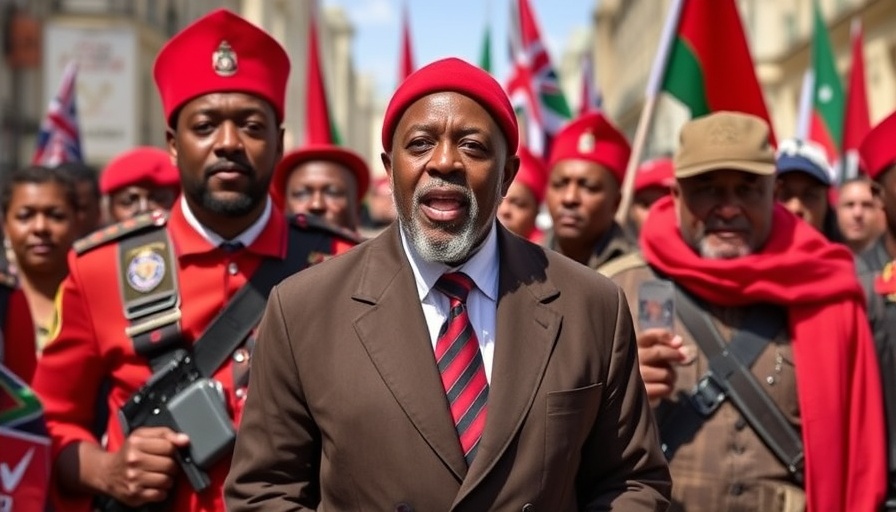
UK's Rejection of Malema's Visa Application: A Deeper Look
The recent decision by the United Kingdom to decline EFF leader Julius Malema's visa application due to concerns over his alleged extremism raises important questions about the intersection of politics and freedom of movement. This decision not only highlights the UK's stringent visa policies but also reflects the complex dynamics of South African politics, where the rhetoric of political leaders can provoke international scrutiny.
Understanding Malema's Political Stance
Julius Malema, a figure notorious for his fiery rhetoric and populist policies, leads the Economic Freedom Fighters (EFF), a party that has positioned itself as a significant player in South African politics, particularly ahead of the upcoming national elections. His views on land reform and economic redistribution have sparked both support and controversy. Malema's calls for the nationalization of land without compensation resonate with many South Africans frustrated by slow reforms post-apartheid; however, they have also been labeled as extremist by critics, including international entities.
The Ripple Effects on International Relations
This visa denial is indicative of broader concerns that resonate with observers of international relations, particularly regarding how countries perceive foreign political figures. The UK's decision underscores the potential consequences of incendiary politics, especially as nations navigate delicate diplomatic relations. It raises questions about the role of foreign governments in influencing local political climates, and whether Malema's entry into the UK would be seen as tacit approval of his political strategies.
Public Reception and Political Ramifications
The reaction to Malema's visa denial has been mixed among South Africans. Supporters argue that the decision reflects an unjustified interference in domestic politics, potentially fueling sentiments of xenophobia against Western nations. On the other hand, critics see this as a warranted response to a political figure whose rhetoric can incite division and unrest. This polarized response is emblematic of the ongoing battle for narrative dominance in South Africa's political landscape.
The Bigger Picture: Political Extremism and its Global Implications
Malema's case is not isolated. Globally, political leaders targeting systemic inequalities are often scrutinized and sometimes barred from entering countries that fear their ideologies may disrupt social order. The implications of these actions stress the importance of addressing extremism in all its forms, which includes the scrutiny of leaders who sway their constituents with populist agendas. As the international community reevaluates its stance on political extremism, the Malema visa incident serves as a reminder of the fine line politicians must tread between advocating for justice and inciting division.
Looking Ahead: Impacts on South African Elections
As South Africa nears its national elections, the ramifications of international scrutiny on leaders like Malema may influence local electoral dynamics. Political analysts suggest that Malema's rejection could rally his supporters under the banner of nationalism and self-determination, framing his party as a champion against foreign meddling. With issues such as unemployment rates, corruption investigations, and the legacy of state capture looming large, the upcoming elections are set to be a pivotal moment in the country’s political evolution.
Call to Action: Engage with South African Politics!
As the political landscape in South Africa continues to evolve, now is the time for citizens and professionals alike to engage in meaningful discussions about the implications of these developments. Understanding the nuances of political rhetoric and its global impact is essential for fostering a well-informed electorate. Stay informed and participate in discourse around national elections, policy developments, and political accountability.
 Add Row
Add Row  Add
Add 




Write A Comment